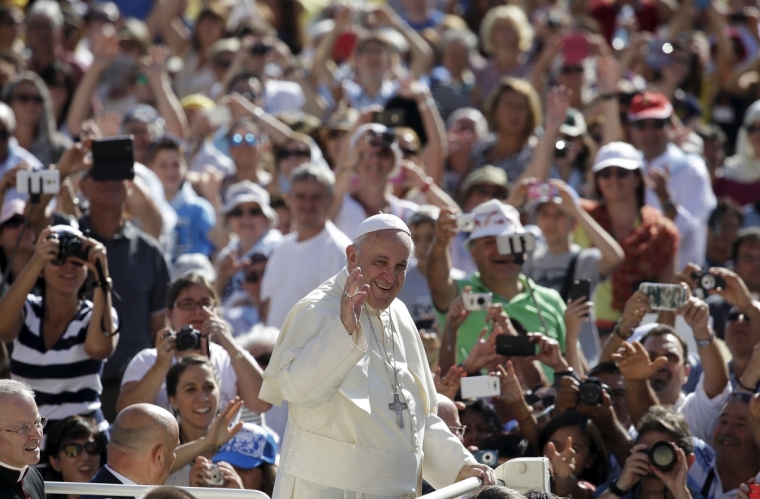Pope decries fundamentalist Catholics who believe in 'absolute truth' while four jihadists arrested for radical threats against him

ROME (Christian Examiner) – Italian authorities have arrested four individuals they said were part of a terror cell making threats against the leader of Catholics worldwide.
According to the U.K.-based Independent, none of the four men were yet active in a plot against Pope Francis, but police said the men were actively discussing "highly dangerous" ideologies and actions online. They were arrested for "condoning terrorism" and "inciting racial hatred," police said.
Italian prosecutor Tommaso Buonanno told the Associated Press the men – three in Italy and one in Kosovo – were celebrating the recent Islamic State attacks in Paris and also threatening an ex-U.S. ambassador in Kosovo.
However, Buonanno said the harshest words the men reserved for the pontiff. "Remember there won't be any pope after this one. This is the last. Do not forget what I am telling you," one of the men wrote.
Fundamentalism is a sickness that we find in all religions. Among Catholics there are many, not a few, many, who believe to hold the absolute truth and they go ahead by harming others with slander and defamation, and they do great harm. ... And it must be combated. Religious fundamentalism is not truly religious. Why? Because God is missing. It is a form of idolatry, in the same way as worshiping money is idolatry.
According to an English-language Italian newspaper, the four men were caught in a terror sweep that has been underway since jihadists killed 130 people in Paris. Italy has also expelled four Moroccans with suspected ties to terror. They were also charged with fomenting extremist views.
Ironically, the arrests of the four men came as Pope Francis offered a lengthy discourse on fundamentalism aboard his plane as he returned from his visit to Africa. However, the comments were largely not directed toward Islamic fundamentalists. Some of the comments were even directed at what he called "fundamentalist Catholics."
Francis said all religious leaders – priests, pastors, imams and rabbis – should avoid political discussions, but exercise influence "indirectly by preaching values, true values, and one of the greatest values is fraternity between us."
But the pontiff also warned, "Fundamentalism is a sickness that we find in all religions. Among Catholics there are many, not a few, many, who believe to hold the absolute truth and they go ahead by harming others with slander and defamation, and they do great harm. ... And it must be combated. Religious fundamentalism is not truly religious. Why? Because God is missing. It is a form of idolatry, in the same way as worshiping money is idolatry. Being political in the sense of convincing these people who have this tendency is a policy that we religious leaders must adopt."
Francis also extended an olive branch to Muslims when asked by an American reporter if the teachings of Muhammad, the founder of Islam, had the potential to impact the modern world. He answered that it was possible to enter into dialogue with Muslims because they have many values, "and these values are constructive."
"Prayer, for example, and fasting. Religious values, and also other values. One cannot cancel out a religion because there are some groups, or many groups, at a certain historic moment, of fundamentalists. It is true that there have always been wars between religions throughout history, always. We too must ask forgiveness. ... And the Thirty Years War, the St. Bartholomew's Day Massacre. ... We too must ask forgiveness, for fundamentalist extremism and for religious wars."
Catholic and Protestant forces battled during the Thirty Years War from 1618-1648 to determine the religious character of the Holy Roman Empire, but the war was also about the emergence of independent nations in pre-modern Europe. The St. Bartholomew's Day Massacre began on August 24, 1572, when Catholics in Paris slaughtered as many as 70,000 Protestants, or Hugenots, nationwide while they slept.